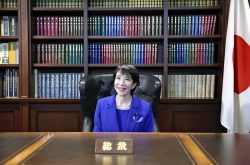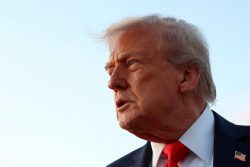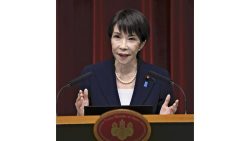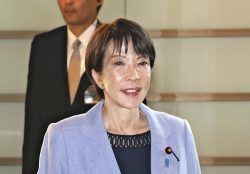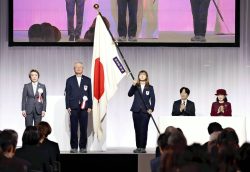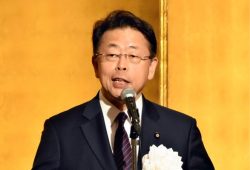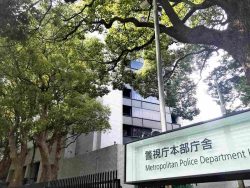Ex-Cabinet Member Notes Trump’s Interest in Auto Trade; Wilbur Ross Says Japan, U.S. Should Step Up Shipbuilding
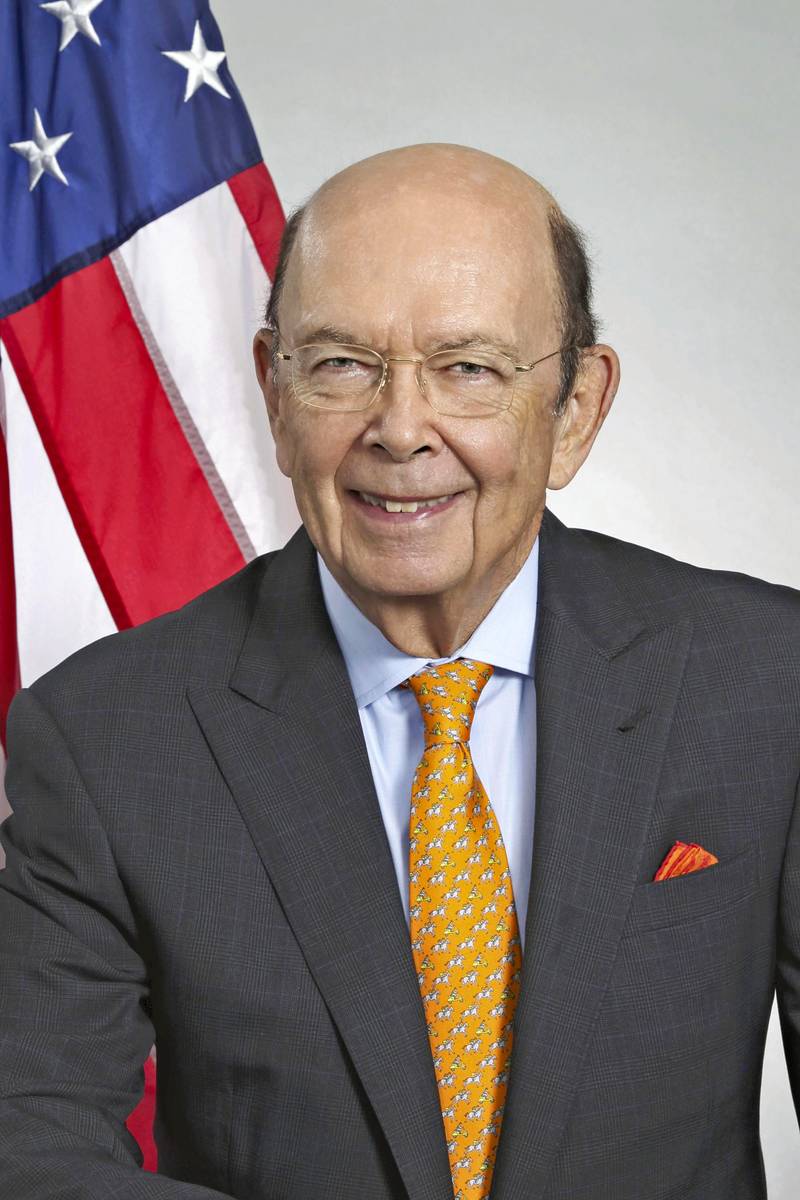
Wilbur Ross
6:00 JST, April 16, 2025
WASHINGTON — Wilbur Ross, 87, who served as commerce secretary in the first administration of U.S. President Donald Trump, said in an interview with The Yomiuri Shimbun that Trump is strongly interested in the automobile industry in negotiations with Japan.
Ross also expressed his view that Japan-U.S. cooperation in the shipbuilding area will be key to the bilateral negotiations.
The following excerpts from the interview have been edited for flow and clarity.
The Yomiuri Shimbun: A lot has been happening with Trump’s moves over the reciprocal tariffs in the past two weeks or so. What do you envision as the endgame of what the president is trying to do?
Wilbur Ross: I think the endgame is he would like lower tariffs everywhere, and he’d like fewer non-tariff trade barriers everywhere. And I think the reason that he is starting [negotiations] with Japan and probably with Vietnam, is both those countries came forward and really expressed a desire to resolve this quickly.
I think whatever he works out with those two will be the pattern in general for everyone else, but my guess is those two might actually get a little bit better deal than the later people, simply for coming early. So I think it was no accident that the same day that he also announced he’s having CFIUS [Committee on Foreign Investment in the United States] reconsider the Nippon Steel-U.S. Steel takeover. I think he meant that as a friendly gesture toward Japan.
Yomiuri: What function would a fast deal between the United States and Japan achieve in calming global frayed nerves, so to speak?
Ross: The big issue is the automotive side, and Japan has already done quite a bit with moving factories, both to the U.S. and in some cases, to Mexico. So, I think that will be a topic.
If you think back, he had talked about tariffs before his first term in office. He talked about it during his second term, particularly about automobiles. He talked about it again in the next two campaigns, and he finally talked about it in the inaugural address. This is something that has clearly been on his mind for a very long time. It shouldn’t come as a surprise that that’s a topic that he has, and autos are a very major source of our deficit.
Yomiuri: What are the president’s priorities regarding the reciprocal tariffs?
Ross: Well, I think he has at least three sets of priorities. One is he would like more revenue in order to help offset the tax decreases that he’s planning to put into effect. Second, he does want to decrease the trade deficit. He feels that the combination of a trade deficit and a budget deficit is too much. It’s not affordable. And then the third is, he does have other objectives. He does have objectives with certain countries about fentanyl, with other countries about illegal crossings at the border.
With Japan, he might have interest in the whole defense side of life. So, he has multiple objectives, and that makes it a little difficult to figure out just where he will come out.
Yomiuri: The president has suspended [the additional tariffs] for 90 days. Is this because he was concerned about the decline in stock prices and bonds as well as the rise in long-term interest rates? Is the president still sensitive to market movements?
Ross: Well, it might. But I think it’s more that he has seen that something like 70 countries have come forward and expressed a willingness to negotiate. It takes time to negotiate, even with one country, let alone with multiple countries. I think the reason he postponed the tariff was also to send the message to the other countries that he’s serious about negotiating and that he would like it done very quickly.
Yomiuri: Regarding the reciprocal tariffs, extremely high tariffs were imposed only on China. What is the president’s intention in terms of his China policy?
Ross: Well, I think he recognizes that probably the most difficult negotiations might very well be with China. And I think what he also is going to want to make sure [is] China just doesn’t dump products through transshipment or by building factories in those other countries.
You look at what happened after the first tariffs we put on China, they moved a lot of factories to Vietnam, and they moved quite a lot of factories to Mexico. So, I think he’s going to want to make sure that those countries that he gives lower tariffs will not just become a proxy for China.
Yomiuri: U.S. Council of Economic Advisers Chair Stephen Miran said that after building a fair trade relationship through tariffs, he will negotiate currency adjustments. What do you think about the Trump administration’s future monetary policy?
Ross: I think what he meant was that he’s opposed to countries deliberately manipulating their currency to make it lower in order to be more competitive with exports. So, I think that’s pretty clearly his objective.
Yomiuri: There’s a lot of talk about reshoring and bringing back manufacturing to the United States, but it takes time to build factories for that purpose. How do you see the time lag?
Ross: Well, it will take time. For example, shipbuilding … We barely build any ships at all, and from a national security point of view, we need to build more of a fleet.
I think he feels that we should be building more commercial vessels and more maritime vessels for the navy. I think he also feels that countries like Japan that have very well-developed shipbuilding should build more military vessels. And from Japan’s point of view, shipbuilding, as you know, is very labor consumptive, so it provides a lot of jobs, and they’re pretty good jobs.
Yomiuri: Speaking of China again, the tensions are very escalatory right now with China also retaliating and raising their tariffs. But what needs to happen to lower the temperature and to have saner heads prevail?
Ross: With China, he surely has multiple objectives. As you know, China never really implemented the Phase One treaty that was negotiated during the first Trump administration. So that’s a problem that he wants solved, but I don’t think he’s willing just to end there, because that didn’t get into intellectual property, it didn’t get into fentanyl, it didn’t get into a lot of things that are important to him.
Yomiuri: Do you think the United States’ currency agreements with other countries are realistic?
Ross: Well, I think many countries don’t want to devalue their currency. I know currency policy has been a very important topic for the Bank of Japan for many, many decades. So, it is a relevant topic because currency is one of the determinants of how much you have to charge for exports and one of the determinants of your ability to buy imports.
— This interview was conducted by Yomiuri Shimbun Staff Writers Hiroyuki Tanaka and Mineko Tokito.
Wilbur Ross
Ross is a businessman who served as commerce secretary in the first administration of U.S. President Donald Trump. He is a specialist in corporate revitalization who worked at an investment bank and other entities after graduating from Harvard Business School. Ross is known to be well-versed on Japan. He has been involved in the reorganization of a Japanese company and has served as the president of a Japan-U.S. exchange organization. He is a long-time friend of Trump, whose strong support he enjoys.
"World" POPULAR ARTICLE
-

China Confirmed to Be Operating Drilling Vessel Near Japan-China Median Line
-

Chinese Foreign Ministry Criticizes Japan’s Largest Ever Defense Budget in Draft Budget for Fiscal 2026
-

Japan, Qatar Ministers Agree on Need for Stable Energy Supplies; Motegi, Qatari Prime Minister Al-Thani Affirm Commitment to Cooperation
-

China Appears to Warn Japan, U.S. with Drills Around Taiwan
-

China Conducts Landing Drills with Foldable Piers, Likely Readying for Taiwan Invasion (Update 1)
JN ACCESS RANKING
-

Japan Govt Adopts Measures to Curb Mega Solar Power Plant Projects Amid Environmental Concerns
-
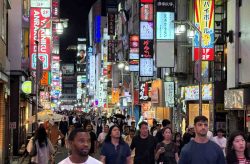
Core Inflation in Tokyo Slows in December but Stays above BOJ Target
-

Major Japan Firms’ Average Winter Bonus Tops ¥1 Mil.
-

Tokyo Zoo Wolf Believed to Have Used Vegetation Growing on Wall to Climb, Escape; Animal Living Happily after Recapture
-

JAL, ANA Cancel Flights During 3-day Holiday Weekend due to Blizzard



